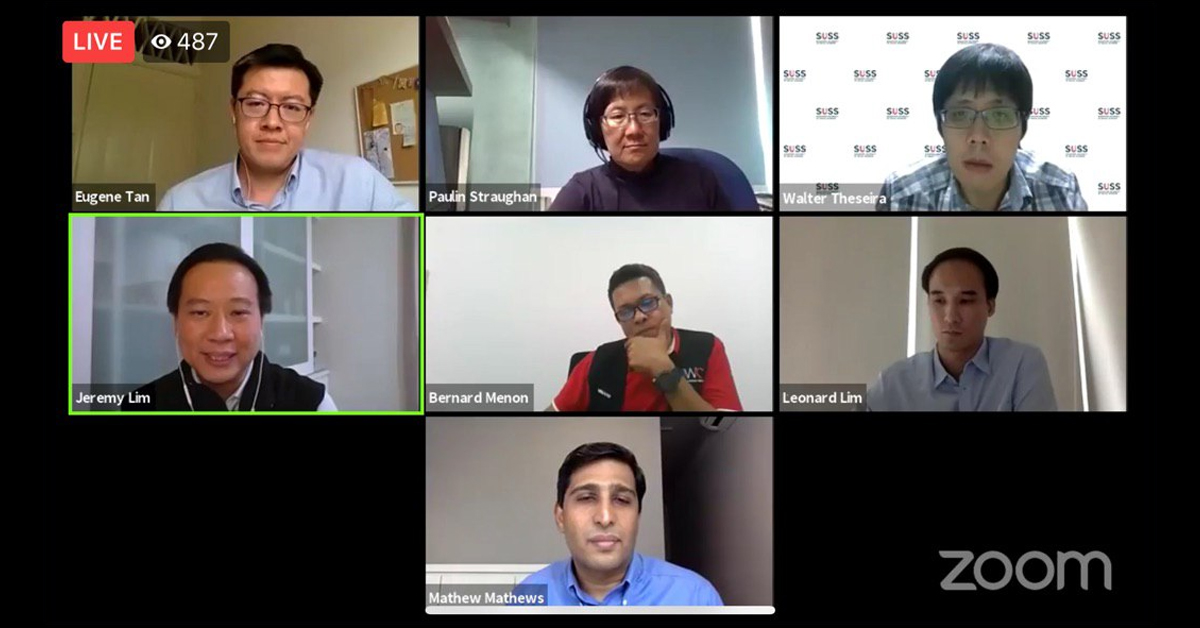
IPS Online, the Institute’s virtual series of seminars on issues related to Singapore’s governance, economy, society and culture, kicked off with the hot topic of the day: the welfare of Singapore’s migrant workers amidst the rising number of Covid-19 infections in the community.
The 90-minute forum, moderated by Dr Mathew Mathews, IPS Senior Research Fellow and head of its Social Lab, was titled Policy Responses and Lessons from the Covid-19 Pandemic.
But while policy issues were discussed by the panellists and guests, what came across most strongly in the session was the need for all Singaporeans – government, business as well as citizens – to do some soul-searching about the kind of values we want to embrace as a society, and see migrant workers as a part of our community deserving a minimum standard of care.
Associate Professor Jeremy Lim, Co-Director of Global Health at the NUS Saw Swee Hock School of Public Health said that once we decide the kind of Singapore we want our children to grow up in, how we decide to treat our migrant workers will be very clear.
He also cited media reports that half of dorm operators flout licensing conditions each year and most were ill-equipped to manage the additional safety measures required by the Ministry of Manpower during the pandemic.
There were robust discussions on the role of the general public, employers and the government in safeguarding the interests of migrant workers as a group.
Associate Professor Walter Theseira from the School of Business, Singapore University of Social Sciences and Nominated Member of Parliament, said that Singapore’s reliance on migrant workers has increased over the years. Earning low wages and with little bargaining power, they do not enjoy much value created in Singapore’s economy. However, he felt that more Singaporeans are now asking hard questions, including the extent to which we want our population to grow, and at what cost.
Professor Paulin Straughan, Dean of Students and Professor School of Social Sciences of the Singapore Management University, echoed that sentiment, noting that many Singaporean would agree that migrant workers live under difficult conditions and deserve better. However, she also noted that this compassion often ends with the idea of a dormitory being built in one’s neighbourhood. Not in my backyard, or NIMBY, then becomes the rallying cry.
The Executive Director of Migrant Workers Centre, Bernard Menon, also noted that public concern tends to surge during events such as the SMRT worker strikes and the Little India riots, only to dissipate after. He hoped, therefore, that after this crisis, the conversations about migrant worker welfare would continue.
There is a need to bring all the stakeholders together – from ordinary Singaporeans, the government, employers and NGOs – so that the conversation will not stop after Covid-19, he added.
Associate Professor Eugene Tan of Singapore Management University, felt, however, that Singapore, addicted to cheap and transient labour, is not prepared to bear the cost, and is therefore, paying the price for it.
Mr Leonard Lim, Country Director, Vriens & Partners, said there is little incentive among business owners to improve the living conditions of foreign workers. The government, therefore, has to play an important role to make substantial changes and reduce the reliance on migrant workers.
Assoc Prof Lim also expressed scepticism about the role of private sector as its nature is to balance books and optimise profits. As long as operations are legal, then it is highly unrealistic to expect the private sector to do more, unless there is substantial public pressure, he added.
When it comes to government action, Assoc Prof Theseira said that while many Singaporeans will think that the government should do something, the reality is it will do what it thinks the public is willing to support.
So some expression of the popular will in this area will help to improve conditions for migrant workers. Singaporeans have an individual and collective responsibility to do something about the situation and not just point fingers at the government or “evil employers”.
Liang Kaixin is Associate Director at the Institute of Policy Studies in Singapore.
This piece was first published in Institute of Policy website.
Top photo by Institute of Policy Studies.
